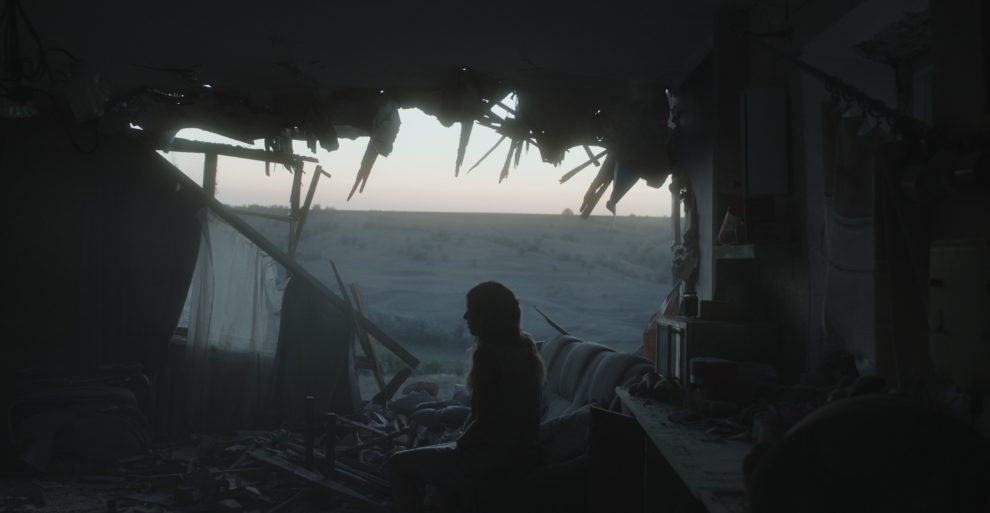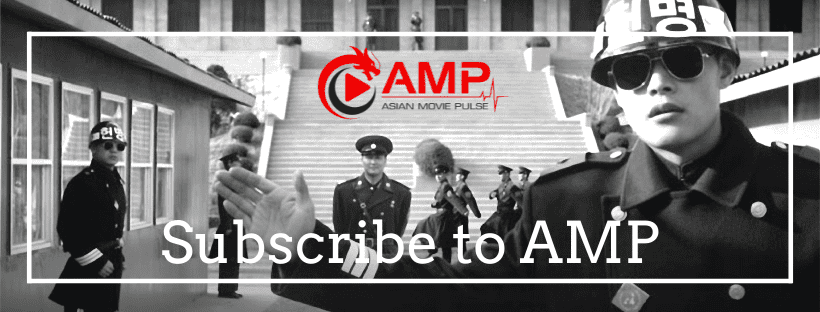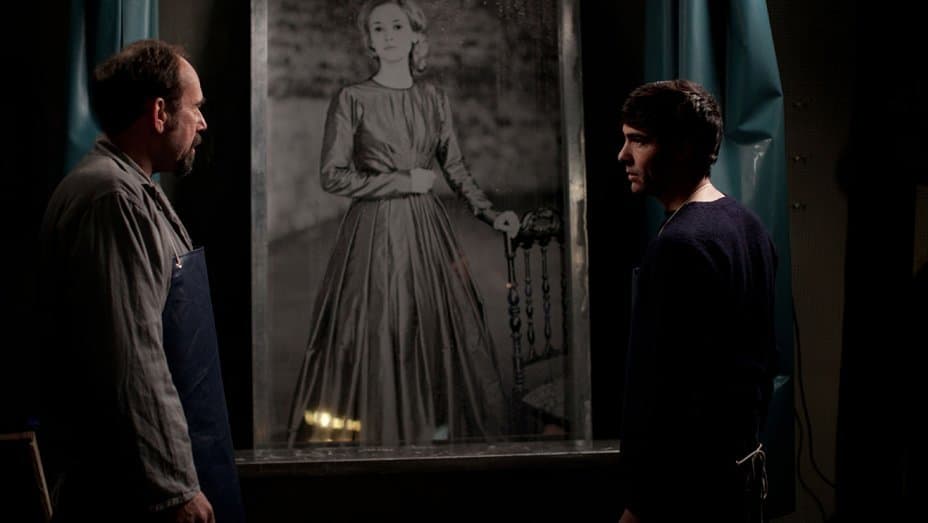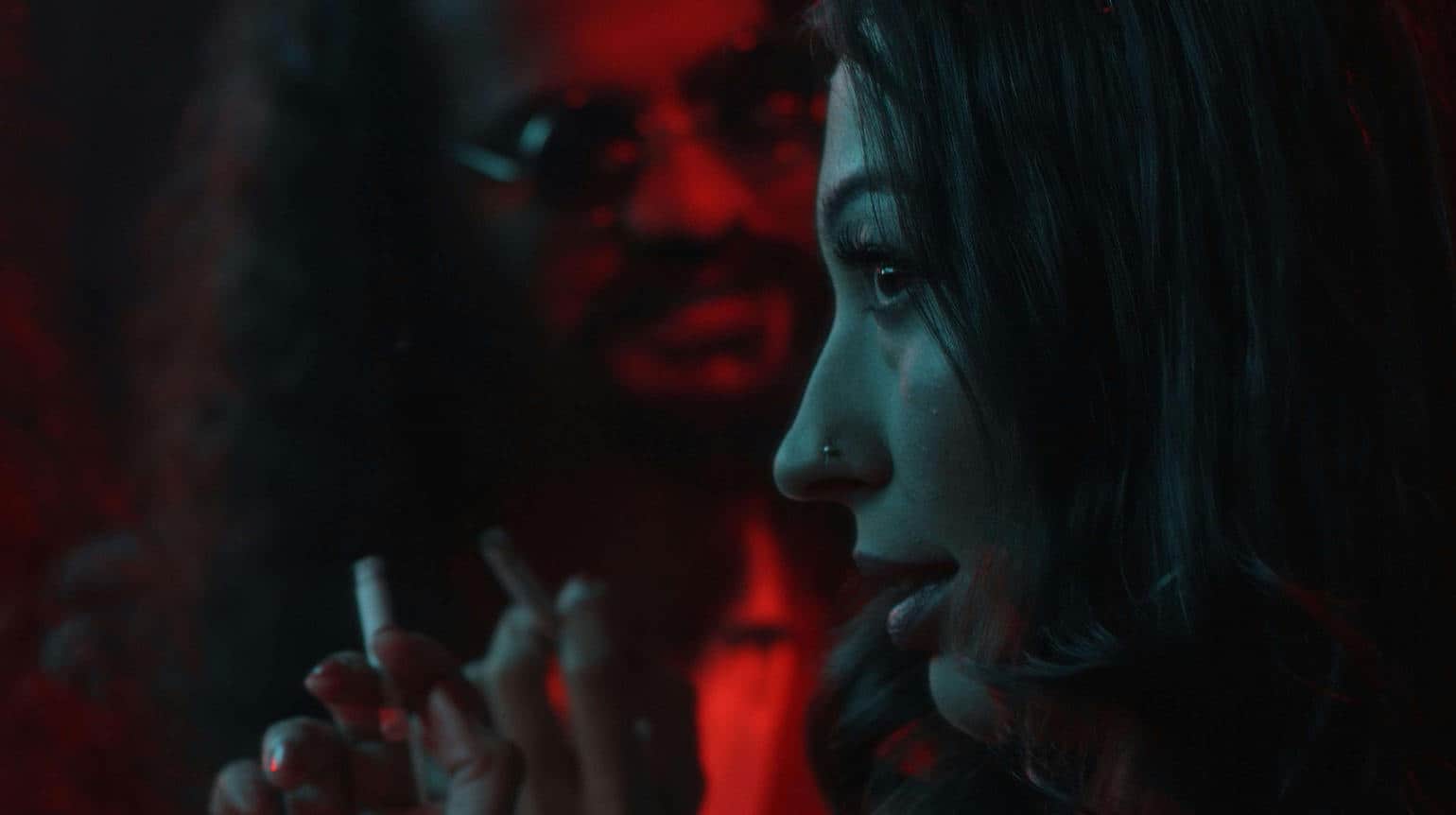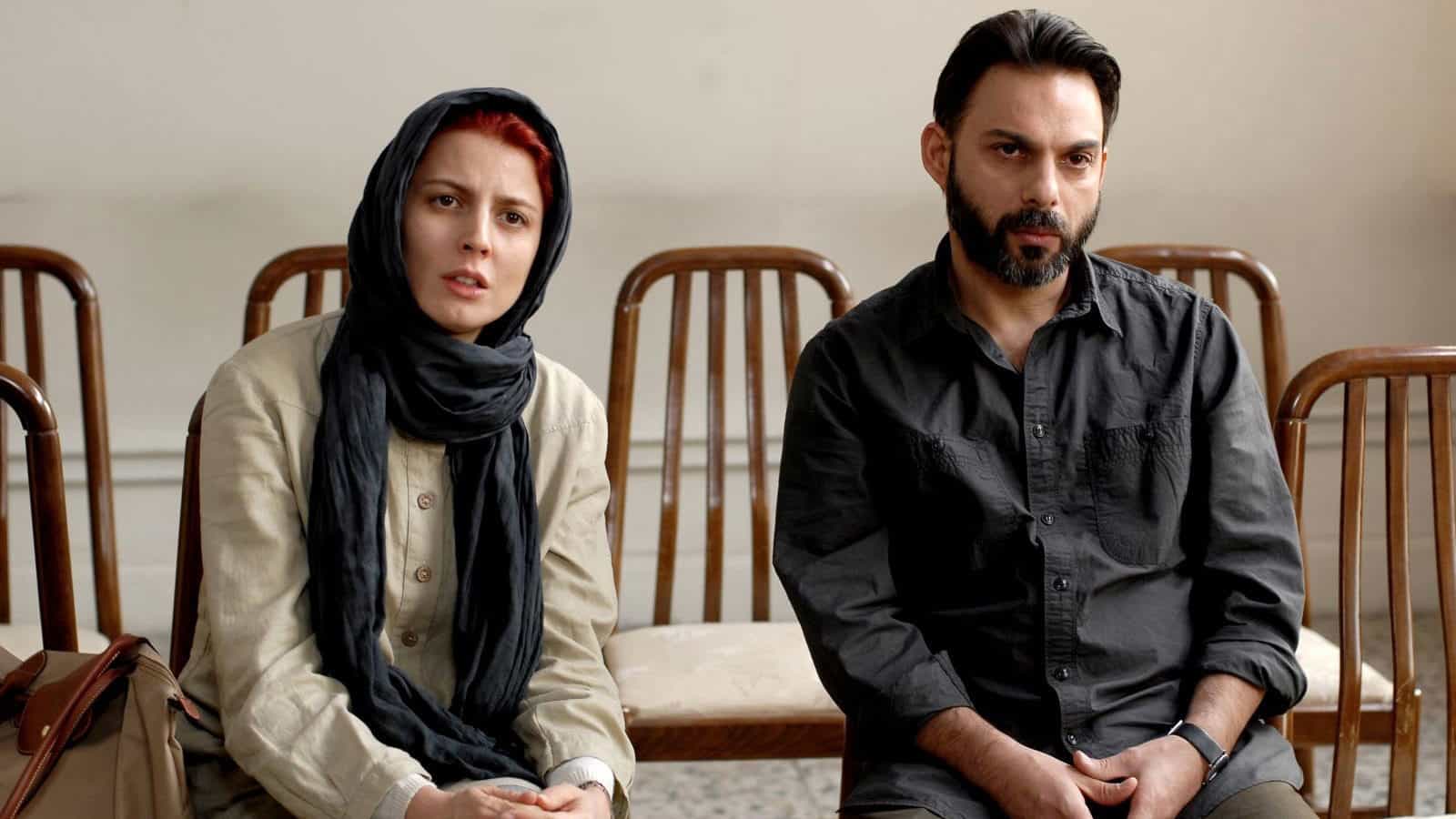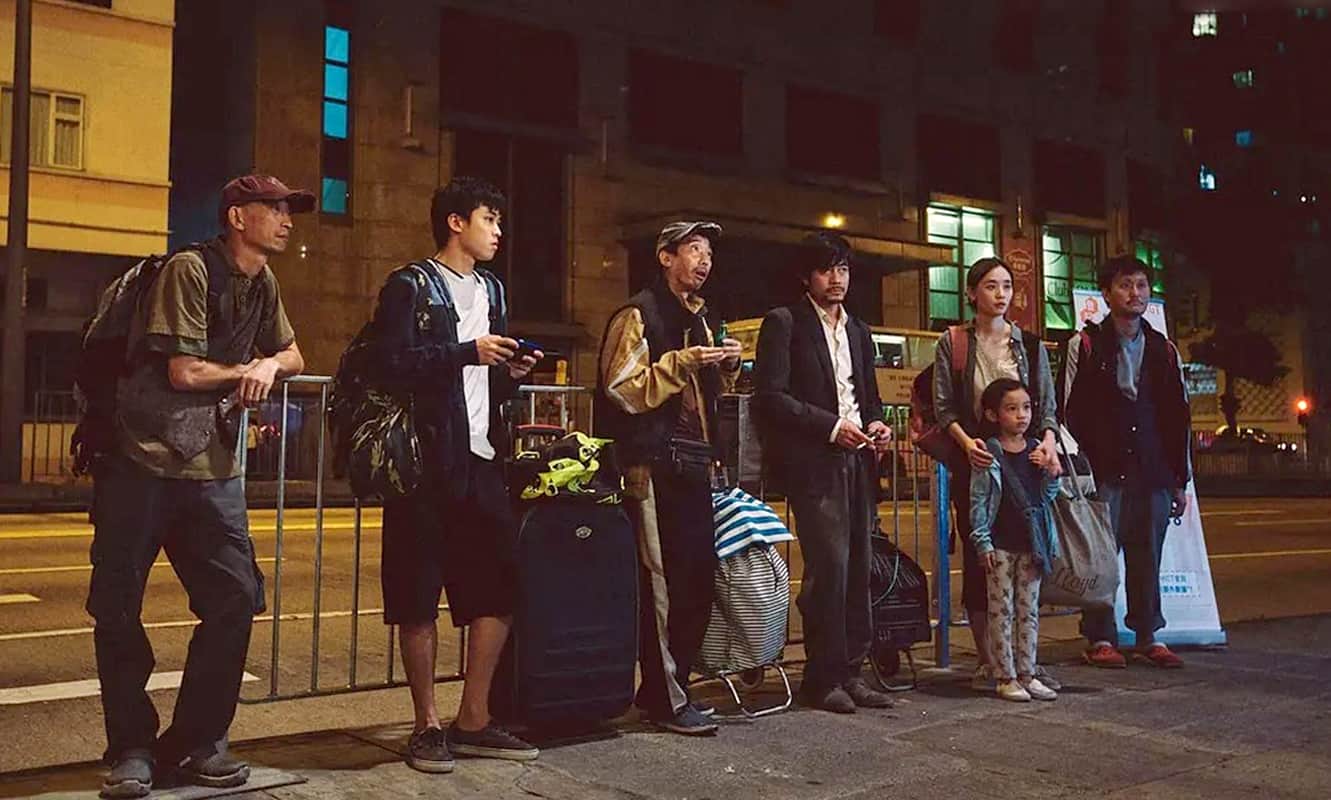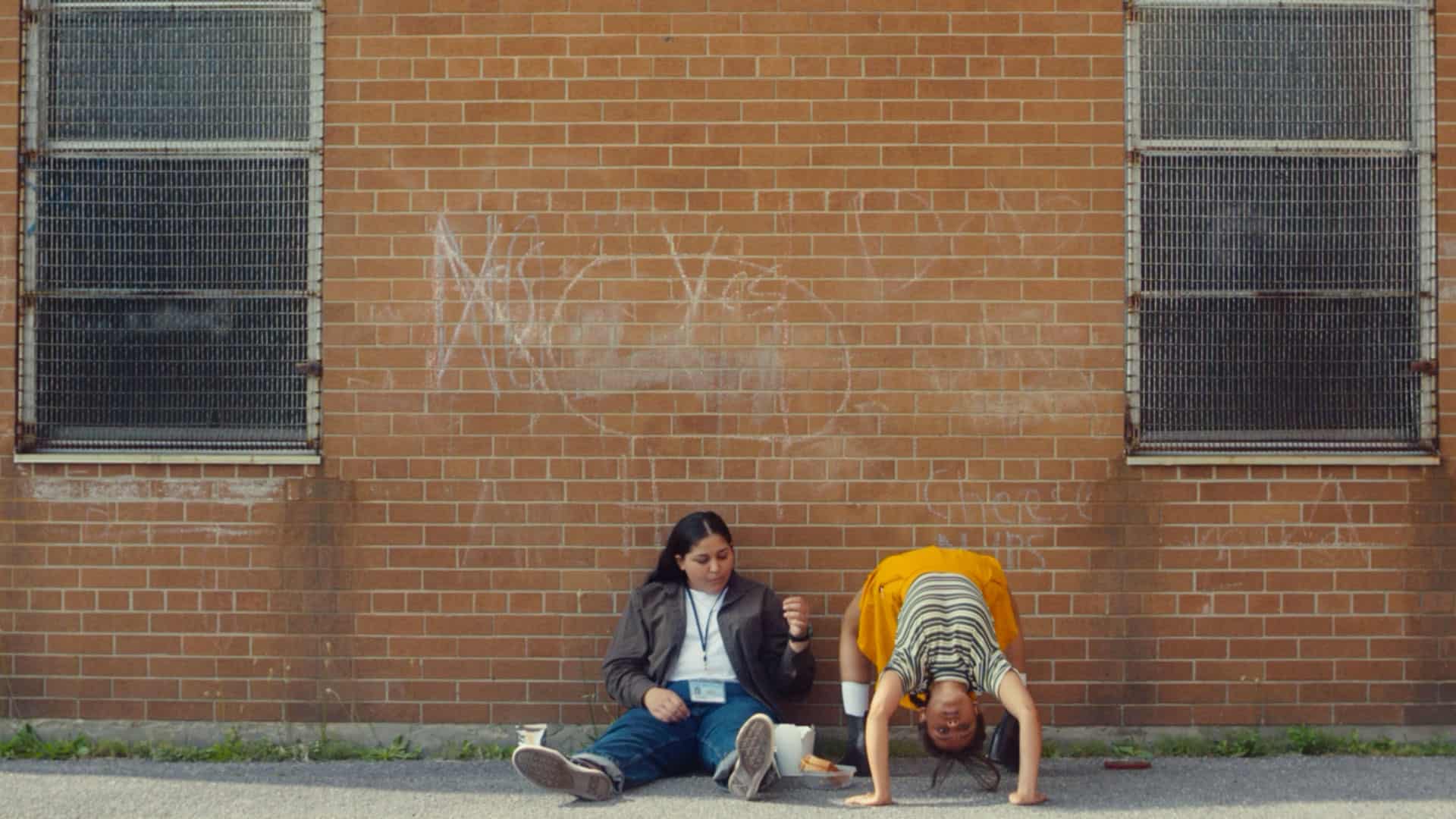This review contains spoilers.
In light of the recent events in Ukraine, interest in “Klondike” seems to have spiked. The international Turkish-Ukrainian first premiered at Sundance this year, has been acquired by MUBI, and has since been making its rounds to other US film festivals. Most recently, Maryna Er Gorbach's third feature met packed audiences at SFFILM last week. Little wonder, too – the film meditates upon the long-incoming tensions between Russia and Ukraine at the eastern borderlands in Donetsk.
“Klondike” takes place in July 2014 during the War in Donbas. Here, seven-months-pregnant Irka (Oksana Cherkashyna) lives an isolated life with her husband, Tolik (Serhi Shadrin) in the disputed territory of Donetsk. Their peace is precarious, however. It seems like everyone beyond the farm expects them to take sides while destroying Irka and Tolik's land. Separatist friends drop by between explosions, expecting Tolik to join the movement. Irka's nationalist brother Yaryk (Oleh Scherbina) blows up at their treachery. Despite these politically tense times, Irka remains calm. As her belly grows bigger and their house begins to splinter, she commands Tolik and Yaryk to commit to the absurd task of picking up the pieces. Armed capture be damned, she says. Their house must be repaired.
Gorbach frames the feature with tension, making it a stressful watch from beginning to end. Unlike the extreme close-ups in Safdie Brothers' “Uncut Gems” (2019) or Kira Kovalenko's “Unclenching the Fists” (2021), however, Gorbach induces unease by coolly watching the couple from afar. With a powerful combination of long takes and long shots, the camera refuses to get involved in the action on-the-ground. Instead, it absorbs the unforgiving landscape of the Donetsk region. From its hard, cold soil to the overcast, rolling hills, “Klondike” captures the land's ambivalence towards the people who dwell upon it.
The silence is overwhelming, then, when the farm disintegrates little by little. After the cow, the chickens, and then the house gets caught in the crossfire, Tolik's lone farm echoes with a resounding emptiness. Under the premise of war, the peaceful pastoral twists into an alienating quarantine. Irka's much-awaited pregnancy devolves into a matter of fear. Longing, anticipation, and eagerness all transmute into desolation, dread, and anxiety.
This permeating sensation of foreboding is only interrupted by Cherkashyna's strong-willed performance of Irka. Her hard-headed attitude carries the film through, keeping human interest intact despite the aloof camerawork. The maturity of Cherkashyna's attitude towards her filmic pregnancy is further striking. Like Julia Docourneau's “Titane” (2021) or Alfonso Cuaron's “Children of Men” (2006), pregnancy serves as a ticking time bomb threatening to explode the female body. Cherkashyna carries with her not just the weight of her forbidden baby, however. The future of mankind – at least within the Donetsk region – weighs heavily upon her shoulders.
Hence, when the film finally climaxes with Irka's premature (and further, alone) delivery, the film feels cathartic. Irka's singular cry on the couch of her decimated home breaks through the overwhelming silence. Through this central moment, Gorbach solidifies her role as a master feature filmmaker as well. Instead of ennobling one side over the other or despairing over the future of mankind, she successfully devises an ambivalent war film. Here, to the civilians subject to war, who wins or dies does not matter much. Instead, simply living on is a matter of utmost significance.


